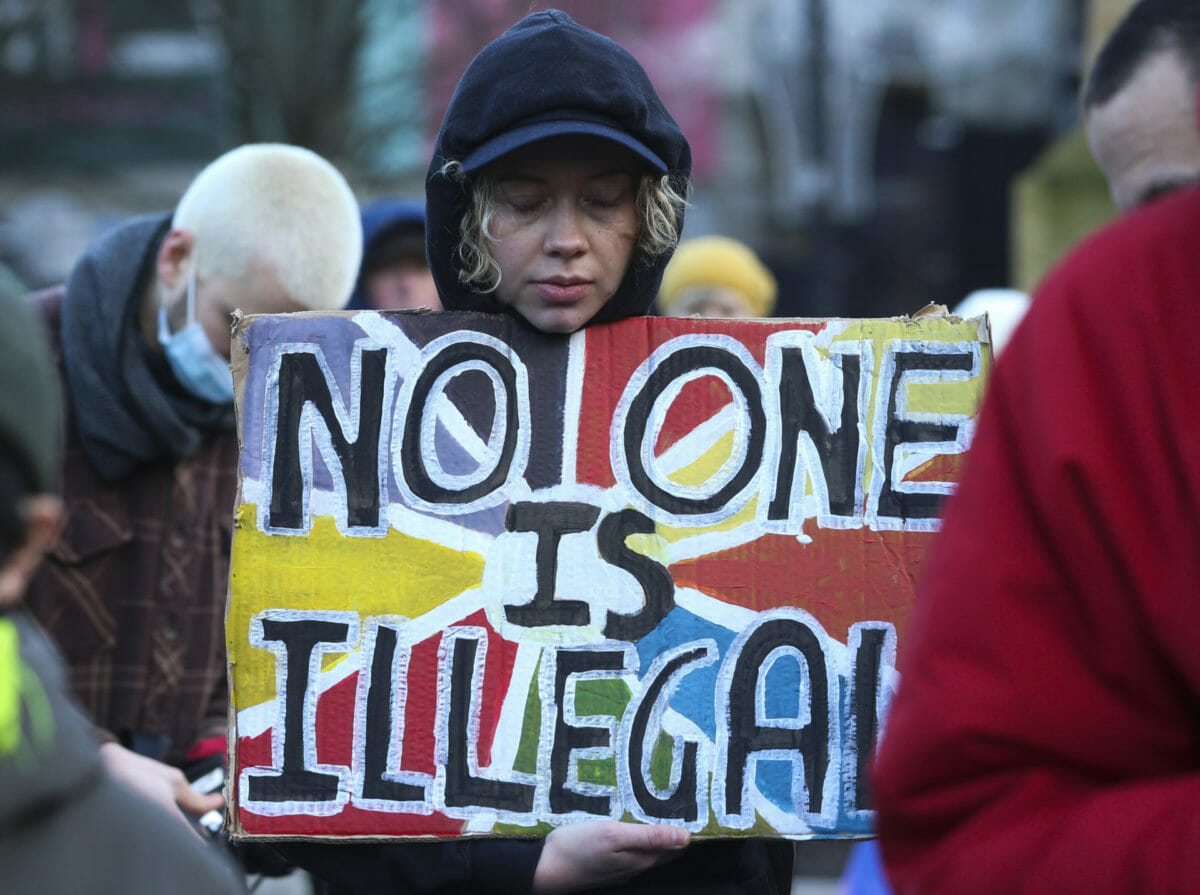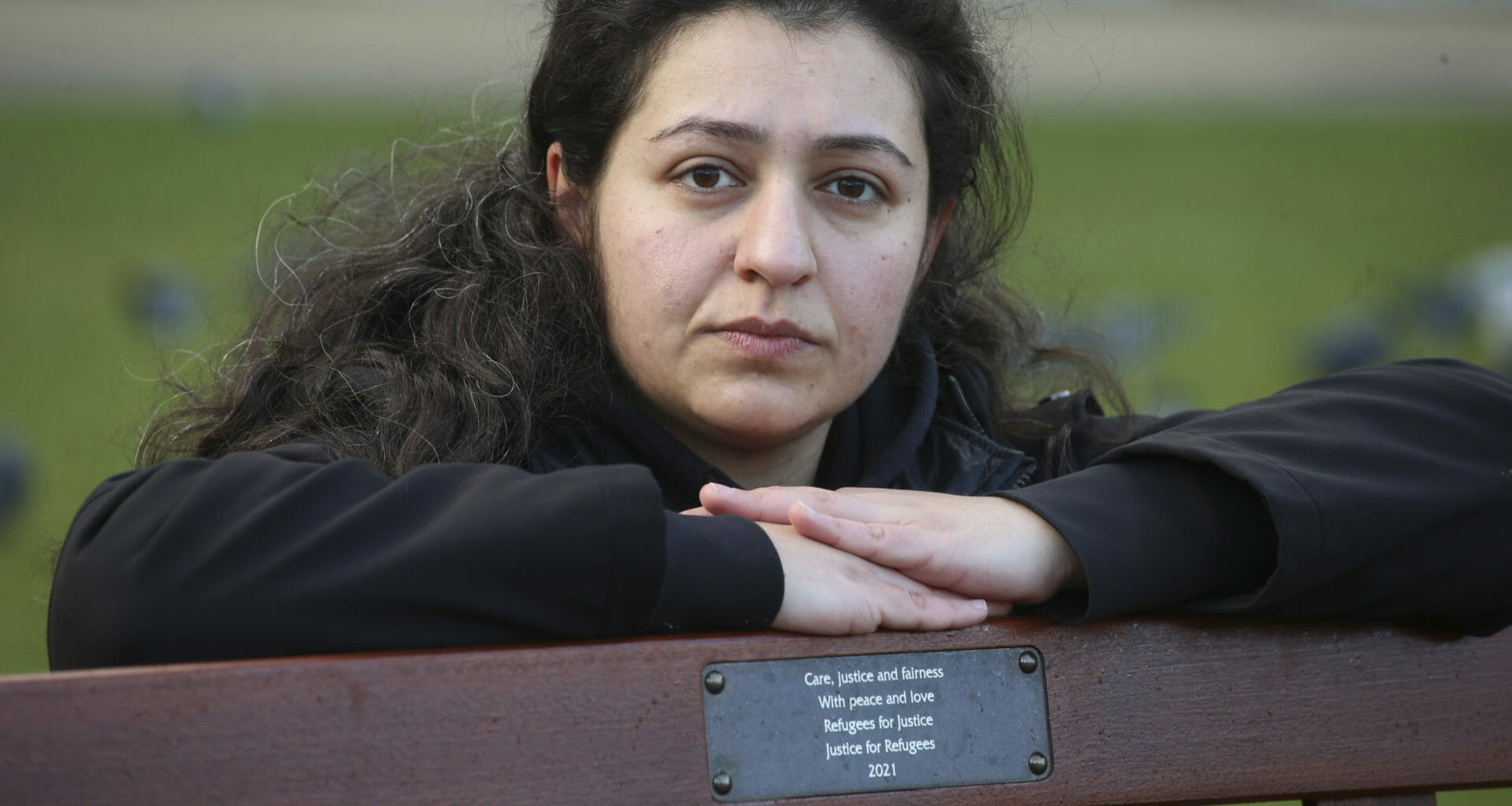The Home Office has been condemned for creating “a parallel world” of unsuitable asylum accommodation in hotels across Scotland where, critics claimed, asylum seekers have been left without adequate support or the oversight of Scottish authorities.
Following the deaths of two asylum seekers in hotel accommodation in 2020 charities and campaign groups raised fears the situation was a “ticking time bomb” that could lead to “further tragedies”.
A Ferret investigation has found the Home Office is currently accommodating more than 250 asylum seekers in hotels in Glasgow, Edinburgh, Aberdeen, Falkirk, Perth and East Kilbride despite the fact that Scottish local authorities have expressed grave concerns about the scheme.
The Home Office confirmed numbers were 291 as of last December, and said it had discussed plans with Scottish local authorities before people arrived to “address concerns”.
Local groups of volunteers in areas where asylum seekers have been sent said people were struggling with their mental health, and to get access to specialist legal services without which their claims could be in jeopardy, putting their lives at risk.
The groups claimed that they were supplying essentials including additional food and winter clothing because asylum seekers in the hotels were being inadequately supported.
That, to me, is a ticking time bomb. What we witnessed in Glasgow should never be repeated, we lost our friends in the most tragic way.
Pinar Aksu, of Refugees for Justice
Asylum seekers in hotels are entitled £8 per week – just over £1 per day – but campaigners said it was taking weeks for even this to be paid in many cases.
Councils claimed they have not signed up as official “dispersal areas” – which would mean they work with the Home Office to find homes in the community – due to the lack of financial assistance made available to them and shortage of suitable accommodation made available.
Home secretary Priti Patel has attacked their decision repeatedly in parliament, claiming Scottish authorities are “not pulling their weight” in accommodating asylum seekers.
She claims that is why the Home Office has signed contracts with hotels in six Scottish towns and cities. Asylum seekers first arrived in Scottish towns and cities outside Glasgow in late November.
Glasgow City Council, the only Scottish city to have been involved with the UK dispersal city, halted its involvement in the Home Office programme in July 2020.
Last September The Ferret reported on calls for the city council to restart housing asylum seekers in order to model an alternative to plans for institutional accommodation centres detailed by the Nationality and Borders bill.
Campaigners said the expansion of hotels as asylum accommodation in six Scottish towns and cities was evidence that the Home Office was now rolling out its plans for institutional accommodation across Scotland.
One source claimed the UK Government was moving people around the UK “like pieces on a chess board”. Those accommodated in Scottish hotels are often moved to other accommodation in England or Northern Ireland, it is understood.
They called for lessons to be learned from past tragedies including an incident in June 2020 when Badreddin Abadlla Adam, a 28-year-old asylum seeker who had been accommodated for months at the Park Inn hotel, stabbed six people and was shot by police at the scene. He was later reported to have been struggling with the impact of the situation on his mental health.

In a series of letters from the Scottish Government to the Home Office, passed to The Ferret, ministers also raised serious concerns about the use of “unsuitable asylum accommodation” contracted on Scottish soil without due oversight.
In one to the Home Secretary Priti Patel, dated the 21 October last year, Shona Robinson, cabinet secretary for social justice, claimed the decision to disperse asylum seekers without the involvement of Scottish authorities was “unacceptable” and called for urgent engagement on the issue.
A second letter, sent on 25 November, outlined the Scottish Government’s ongoing concerns and again invited the Home Secretary to meet with Scottish ministers. She reiterated concerns in a letter dated 27 January.
“Despite my raising this issue in October, the Home Office has since procured further hotels in Scotland without the courtesy of informing me or adequate advance engagement with COSLA and Scottish local authorities,” she wrote this month.
She also raised concerns about inadequate support being offered to asylum seekers, and their access to legal services, adding that many MSPs are worried “lessons have not been learnt following the tragic incident at the Park Inn”.
Voluntary organisations told The Ferret that asylum seekers were suffering despite the involvement of Home Office accommodation contractor Mears, who have welfare officers at the hotels.
One volunteer – who asked not to be identified – said: “We’ve been asked to provide everything from extra food to winter jackets for those without them and suitable shoes as some people were turning up in sandals.”
The group are running English classes, helping people access lawyers and taking them on walks to help lessen their isolation.
The volunteer claimed the lack of information about the process was causing deep anxiety and stress. While some people stay for months, others are moved to other locations across the UK very quickly. “It’s very disorientating,” she added.
“Morale can get very low. We are doing what we can but it’s not sufficient. They should be housed in the community in their own flats. They need stability and to build up relationships with people they know they can trust.”
Pinar Aksu, of Refugees for Justice – which has been campaigning to end the use of hotel accommodation for asylum seekers since the Park Inn tragedy – expressed concerns that this accommodation was now being “normalised”.
The Home Office should start working with councils, instead of side-lining and ignoring them
SNP MP Stuart McDonald
She and other members of Refugees for Justice yesterday unveiled a bench in Glasgow’s George Square to remember asylum seekers who lost their lives in 2020 while placed in hotel accommodation.
“I am deeply concerned for the welfare of the people, they often feel depressed and are struggling,” she said. “That, to me, is a ticking time bomb. What we witnessed in Glasgow should never be repeated, we lost our friends in the most tragic way.
“We continue to ask for accountability, justice and change – the usage of hotel accommodation must end now.”
The campaigning group, set up in response to the Park Inn tragedy, claims the use of hotels is part of the move towards institutional accommodation which “warehouses” asylum seekers across the UK. It called on the Scottish Government and local authorities to use “every power they have” to resist the development.

Gary Christie, director of policy and communications at Scottish Refugee Council, agreed that the situation was “deeply concerning”.
He added: “The tragic events of 2020 in Glasgow at Park Inn and MacLays hotels , showed us just how serious these consequences can be.
“There are clear lessons and clear warnings from what happened then. We fear that more tragedies may happen unless the Home office stops this practice of moving people into and around hotels and other types of institutional accommodation.”
He said consent should be sought and planning agreed with local authorities, services providers and communities before asylum seekers were placed in an area.
“We believe this is the only responsible approach, so that people seeking safety can become part of their new community, and are not stuck in a parallel Home office institutional regime,” he added.
SNP MP Stuart McDonald – who has battled over the issue with Patel in recent months – said the decision to use a network of Scottish hotels was a “confrontational approach by the Home Office”.
“The Home Office should start working with councils, instead of side-lining and ignoring them,” he added.
“For the Home Office simply to stick vulnerable asylum seekers in any old hotel they can find, however unsuitable or poorly located in relation to services, and then just to leave the local authority to pick up the pieces is totally unacceptable.”
Fears have also been raised that the poor planning and lack of community cohesion measures could be exploited by facist organisations, with far right activists seen on the streets of town where asylum seekers have been housed this month.
On 19 January, Britain First – which campaigning organisation Hope not hate said had “a history of confrontational and extreme anti-Muslim, anti-migrant and sectarian activism” – handed out leaflets in Falkirk.
Research director Joe Mulhall stressed that the event was small and said the group was “unlikely to grow fast” . But he warned they used small events to “create divisive propaganda” and had previously sought to intimidate vulnerable asylum seekers in hotel accommodation in England.
The Convention of Scottish Local Authorities (COSLA) repeated its calls for “urgent dialogue” with the Home Office.
Councillor Kelly Parry stressed all local authorities recognised their responsibilities to support asylum seekers adding: “COSLA has, for some time, been seeking urgent dialogue on the role that Scottish councils can play in ensuring that asylum seekers are appropriately accommodated and supported.
“Scottish Local Government is of the opinion that there is a workable solution to be found here and we would urge the UK Government to engage in discussions with us as a matter of priority.”
A Scottish Government spokesperson said it had raised its concerns “numerous times” with the UK Government.
They added: “We have significant concerns about the long term suitability of hotels to accommodate people seeking asylum. People seeking asylum in the UK should be accommodated within communities where they can begin to rebuild their lives, have access to essential services, and the support and advocacy they need to support better longer term outcomes. The UK Government is failing to provide that.
“If the Home Office properly supported and funded local authorities across the UK who participate in asylum dispersal, they may find that dispersal is more attractive, to the benefit of those seeking asylum, as well as to local communities.”
A spokesperson for Mears confirmed it was “providing additional contingency accommodation in hotels in Scotland” in line with UK-wide policy.
“Supporting the welfare of service users is of the utmost importance to Mears,” he added. He said the contractor was working with local authorities and with other partners, including health and welfare teams and NGOs to provide support to service users and had ensured that all service users are registered with a GP.
Additional services, such as English classes, Street Soccer and walking groups, were being organised by “local partners and NGOs’’ he added, with people referred to Migrant Help for help accessing legal services. Providing clothing, he said, was not part of Mears Home Office contract.
“Mears Resident Welfare Managers support service users at hotels and assist with any issues.”
A Home Office spokesperson said it had “consulted with all relevant local authority leads in Scotland” before asylum seekers were sent to hotels to “address any concerns”.
They added: “This joint working has ensured wraparound support for the new arrivals, enabling successful integration and operations in regions new to such work.
“There has been substantial regular engagement with COSLA and the third sector in providing support, including winter clothing activities like English classes.”
Images thanks to Gordon Terris/Herald & Times
This story was published in tandem with the Sunday National.















The organisations who are encouraging vulnerable people to come here, without first acquiring the resources to look after them, need to take some responsibility.